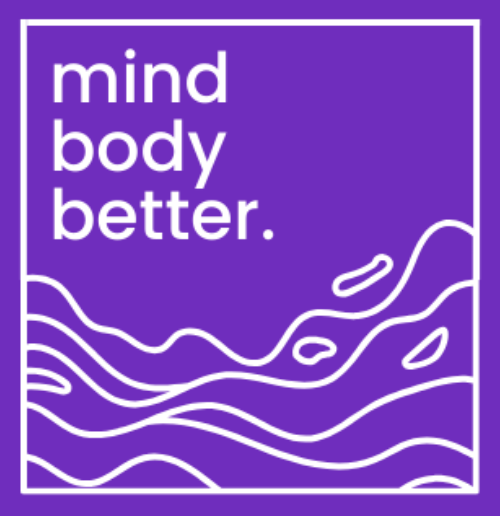Have you ever wondered if detox diets actually deliver on their promises? In this article, we take a closer look at the truth behind detox diets and whether they truly work. From trendy juice cleanses to intense fasting regimes, detox diets have become increasingly popular in recent years. But are they effective in eliminating toxins from our bodies and improving our overall health? Find out as we uncover the reality of detox diets and separate fact from fiction.
The Truth About Detox Diets: Do They Really Work?

Understanding Detox Diets
Detox diets have gained popularity in recent years, with proponents claiming that they can help cleanse the body, improve health, and even aid in weight loss. But what exactly are detox diets? In simple terms, detox diets are short-term dietary plans that aim to remove toxins from the body, typically by limiting certain foods or food groups and increasing the intake of specific nutrients or natural substances. These diets often involve consuming fruits, vegetables, juices, herbal teas, and supplements while eliminating processed foods, caffeine, alcohol, and sugar.
The Theory Behind Detox Diets
The theory behind detox diets is that our bodies accumulate toxins from various sources such as pollution, processed foods, and chemicals in our environment. These toxins are believed to cause a range of health issues like fatigue, bloating, skin problems, and even chronic diseases. Proponents of detox diets argue that by following a specific eating plan, we can support our body’s natural detoxification systems and eliminate these harmful substances, leading to improved health and well-being.
Types of Detox Diets
There are numerous types of detox diets available, ranging from juice cleanses to fasting regimens. Some popular examples include:
- Juice cleanses: Involving the consumption of only freshly pressed juices for a set period, usually a few days.
- Smoothie detoxes: Similar to juice cleanses, but with the inclusion of blended fruits, vegetables, and sometimes proteins like yogurt or plant-based protein powder.
- Water fasting: Abstaining from all food and only consuming water for a specified period.
- Vegan or plant-based detox diets: Focusing on whole foods, primarily fruits, vegetables, legumes, and grains, while excluding animal products.
- Herbal detox diets: Incorporating herbal teas or supplements that are believed to promote detoxification.
- Elimination diets: Temporarily removing specific foods or food groups, such as gluten or dairy, to identify potential food sensitivities or allergies.
Benefits of Detox Diets
Proponents of detox diets often highlight a range of potential benefits, such as improved digestion, increased energy levels, clearer skin, weight loss, and reduced inflammation. Some individuals might experience a sense of rejuvenation and improved mental clarity after completing a detox program. Additionally, detox diets can serve as a way to reset eating habits and promote a focus on whole, nutritious foods.

Potential Risks of Detox Diets
While detox diets may offer some benefits, it is crucial to approach them with caution, as they also come with potential risks. One of the primary concerns is the lack of essential nutrients during a detox period, especially if the diet is overly restrictive or followed for an extended period. This may lead to nutritional deficiencies, weakness, and even damage to organ systems.
Furthermore, detox diets can be mentally and emotionally challenging, as they often require strict adherence and may lead to feelings of deprivation or obsession with food. These factors can potentially contribute to disordered eating patterns or an unhealthy relationship with food. It is essential to assess one’s emotional and mental well-being before embarking on a detox diet.
Scientific Evidence on Detox Diets
When it comes to scientific evidence, the research on detox diets is limited and often conflicting. Many studies on detox diets are small-scale, poorly designed, or focused on animal models rather than human subjects. Consequently, the existing evidence is not strong enough to support the widespread claims made by proponents of detox diets.
While some studies suggest potential benefits, such as improved liver function or reduced inflammation, more research is needed to validate these findings. Additionally, there is a lack of long-term studies examining the effects of detox diets on overall health and sustainability.

Weight Loss and Detoxification
Weight loss is a common claim associated with detox diets. While individuals may experience initial weight loss during a detox period, this is typically due to a reduction in calorie intake rather than any specific detoxification process. Once normal eating habits resume, the lost weight is often regained.
Detox diets that promote rapid weight loss through severe calorie restriction or extreme fasting can be dangerous and lead to nutrient deficiencies, muscle loss, a slowed metabolism, and an increased risk of rebound weight gain. It is essential to prioritize sustainable, long-term changes in eating habits and physical activity for healthy weight management.
Detox Diets and Energy Levels
Proponents of detox diets often claim that they can boost energy levels and improve overall vitality. While some individuals may experience a temporary increase in energy during a detox period, this is more likely attributed to factors such as increased hydration, reduced consumption of processed foods, and improved nutrient intake.
However, the restrictive nature of many detox diets, especially those that eliminate major food groups or severely restrict calorie intake, can lead to low energy levels, fatigue, and decreased physical performance. It is crucial to listen to your body’s needs and ensure an adequate intake of essential nutrients for sustained energy throughout the day.

Detox Diets and Nutritional Deficiencies
As mentioned earlier, detox diets often involve severe restrictions on certain foods or food groups. This can lead to nutritional imbalances and deficiencies if not carefully monitored. For example, eliminating whole grains and legumes can result in insufficient fiber, B vitamins, and minerals like iron and zinc. Meanwhile, excluding animal products may increase the risk of deficiencies in vitamin B12, omega-3 fatty acids, and complete proteins.
If considering a detox diet, it is essential to consult with a healthcare professional or a registered dietitian to ensure nutritional adequacy and prevent deficiencies. They can provide guidance on proper supplementation and monitoring during the detox period.
Long-term Effects of Detox Diets
While detox diets may offer short-term benefits, their long-term effects on health and well-being are still uncertain. The restrictive nature of many detox diets makes them challenging to sustain over an extended period, raising concerns about potential yo-yo dieting and weight fluctuations.
Additionally, the focus on quick fixes and short-term results may overshadow the importance of establishing balanced, sustainable eating habits, regular physical activity, and overall lifestyle changes. It is crucial to prioritize long-term well-being and work towards a healthy relationship with food rather than relying on periodic detoxes.
In conclusion, detox diets may provide some short-term benefits, such as increased consumption of whole foods and a focus on healthier habits. However, their effectiveness in eliminating toxins and promoting sustainable, long-term health remains largely unsupported by scientific evidence. It is essential to approach detox diets with caution, considering potential risks and consulting with healthcare professionals before embarking on any drastic dietary changes. Remember, the key to overall well-being lies in adopting balanced, nutritious eating habits and an active lifestyle, rather than relying solely on short-term detoxification programs.


